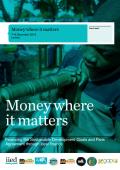
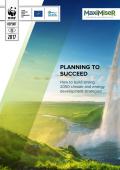
The importance and value of 2050 strategies that seek to cut greenhouse gas emissions while also ensuring well-being and prosperity have been acknowledged by policy makers, advocates, and businesses for many years. However, there is no formal multi-lateral or international guidance as to what such strategies should contain or how they should be developed. While this is an important deficit that should be corrected, it is somewhat mitigated by a strong body of independent papers.
This paper aims to be a starting point for policy makers who are seeking to either develop their country’s first 2050 decarbonisation plan, or to strengthen their existing plan. The literature reviewed for these guidelines ranges from legislative texts and governmental agency reports to the outputs of independent research projects. While national circumstances will require some differences between countries’ 2050 strategies, the consistency with which the various papers identify the essential building blocks of a strong 2050 strategy should be noted.
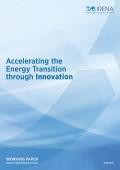
The world needs a decarbonised energy sector by the second half of the century. In many energy applications, the necessary technologies are available today, so the important next step is the development of enabling policy frameworks in place to scale up their deployment. There are however energy demands in end-use sectors that are responsible for a third of the emissions in the Reference Case in 2050 – the baseline of this study, where several technology options are emerging but are yet to reach their economic and technical viability.
This working paper aims to shed light on the conditions needed to nurture low-carbon technology innovation. By assessing current status and future needs for such technologies, it seeks to identify the elements of a flexible policy framework for innovation, broadly suitable to enable decarbonisation of the energy sector between now and 2050. The envisaged of cultivation of effective, case-specific innovation policies would do much to help countries meet international climate goals, such as those set forth in the 2015 Paris Agreement.
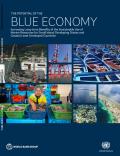
This report was drafted by a working group of United Nations entities, the World Bank, and other stakeholders to suggest a common understanding of the blue economy; to highlight the importance of such an approach, particularly for small island developing states and coastal least developed countries; to identify some of the key challenges its adoption poses; and to suggest some broad next steps that are called for in order to ensure its implementation. Although the term “blue economy” has been used in different ways, it is understood here as comprising the range of economic sectors and related policies that together determine whether the use of oceanic resources is sustainable. An important challenge of the blue economy is thus to understand and better manage the many aspects of oceanic sustainability, ranging from sustainable fisheries to ecosystem health to pollution. A second significant issue is the realization that the sustainable management of ocean resources requires collaboration across nation-states and across the public-private sectors, and on a scale that has not been previously achieved.
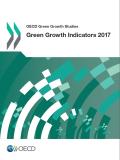
This OECD report on Green Growth Indicators updates previous editions. It integrates the results of recent developmental work on new indicator methodologies and wider country coverage. This applies notably to the indicators on environmentally adjusted multifactor productivity growth, population exposure to air pollution and the related economic costs, land cover change, and technological innovation. Other indicators have been refined, including demand-based CO2 productivity and environmentally harmful subsidies. Moreover, greater emphasis is placed on the role of policy action. To that end, the report includes enriched discussion in the chapters on environmentally related taxes and subsidies, technology and innovation, and international financial flows. This is supported by an enhanced visual presentation of the indicators.
